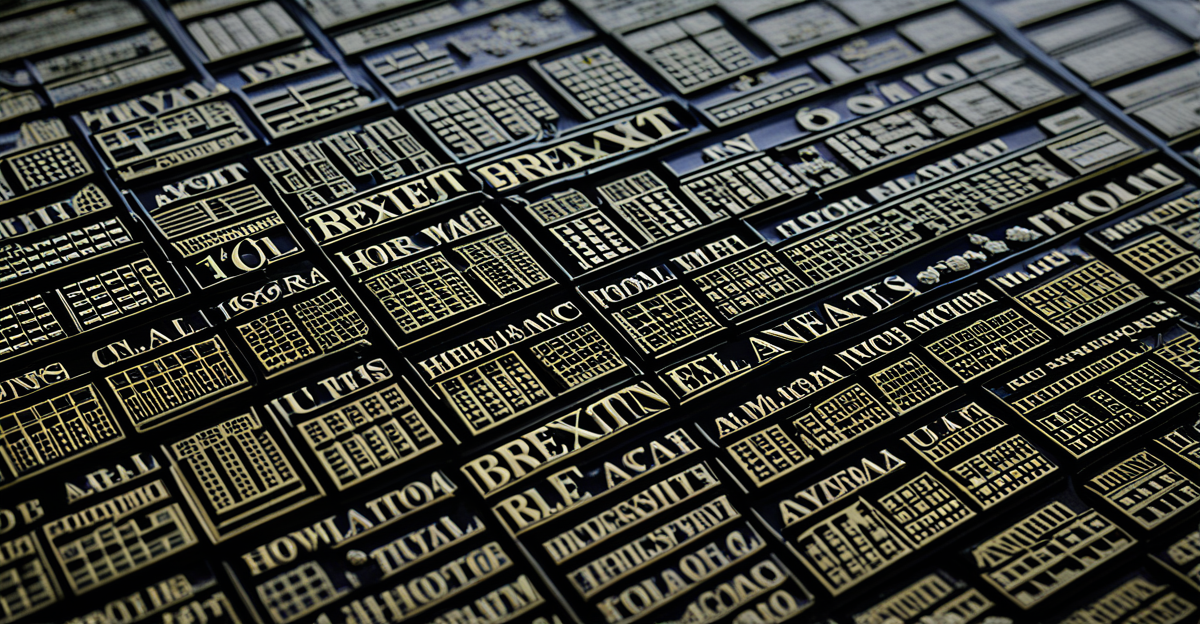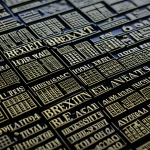Immediate Impacts of Brexit on UK Property Investment
Since the Brexit referendum, the Brexit effect on property market has been marked by notable shifts in property prices across different UK regions. London, traditionally a hotspot for property investment, experienced a slowdown in price growth. Conversely, some northern regions saw relative stability or modest increases as investors sought alternative opportunities. This regional variation illustrates the complex nature of the immediate Brexit impact on property values.
Market demand showed considerable volatility in the wake of Brexit. Many investors paused activity, reflecting uncertainty about future economic conditions and regulatory changes. This dampened confidence led to lower transaction volumes, especially in the months following the referendum. However, some opportunistic investors recognized potential in short-term dips, which affected overall market dynamics.
Also read : Boost Office Comfort: The Ultimate HVAC Efficiency Handbook for UK Workspaces
The short-term effects on investor confidence were also influenced by fluctuating exchange rates and concerns over trade relationships. While some investors withdrew, others adopted a wait-and-see approach, resulting in uneven investment patterns. Understanding these immediate changes is crucial for anyone actively involved in UK property investment during this transitional period.
Immediate Impacts of Brexit on UK Property Investment
The Brexit effect on property market has been significant and multifaceted, particularly in the immediate aftermath of the referendum. One of the most notable immediate Brexit impacts was the fluctuation in property prices across various UK regions. London, traditionally buoyant with international interest, experienced a cooling-off period with price stagnation or slight declines in some prime areas. Conversely, some northern regions saw increased activity as buyers sought more affordable options amid uncertainty.
Have you seen this : Boost Office Comfort: The Ultimate HVAC Efficiency Handbook for UK Workspaces
Market demand became notably volatile post-referendum. Investor confidence wavered due to unclear future trade relations and economic prospects. This unpredictability translated into cautious behaviour, with fewer transactions and longer decision times. UK property investment experienced a slowdown, as some investors opted to adopt a ‘wait and see’ approach rather than committing funds immediately.
The immediate Brexit impact also hit investor sentiment strongly. Uncertainty around regulations, currency shifts, and economic policy prompted many institutional and private investors to reassess risk, leading to a short-term dip in activity. These effects underscore how deeply Brexit reverberated through the UK property market, altering patterns of investment and price movement almost overnight.
Changes in Foreign Investment and Buyer Behaviour
Since Brexit, foreign property investment UK has undergone significant shifts, largely shaped by new economic and regulatory landscapes. The overseas buyers Brexit influence is evident in fluctuating demand patterns, especially among EU investors, who now face more complex procedures and uncertainty. Consequently, demand from EU buyers has decreased, while interest from non-EU international real estate investors has exhibited more resilience, seeking opportunities amid market adjustments.
Currency volatility following Brexit has notably affected international real estate investment. A weaker pound initially made UK properties more affordable to overseas buyers but introduced hesitancy due to unpredictable exchange rates. This dual effect led some investors to pause or reduce exposure, impacting overall inflows.
Additionally, stricter immigration and residency requirements introduced post-Brexit posed challenges for foreign buyers, influencing their behaviour and investment decisions. Many adjusted their strategies, focusing on longer-term prospects or shifting interest to regions outside London, where prices might be comparatively attractive. Understanding these dynamics is essential to grasp the ongoing foreign property investment UK landscape and how overseas buyers Brexit continues to reshape international real estate investment trends in the UK.
Changes in Foreign Investment and Buyer Behaviour
The foreign property investment UK landscape shifted sharply following Brexit. A key question often asked is: How did Brexit affect demand from overseas buyers? The immediate Brexit impact caused a decline in interest from EU buyers, who faced new restrictions and uncertainty. Conversely, non-EU buyers exhibited cautious optimism, attracted by currency depreciation and the potential for long-term gains.
Currency fluctuations played a crucial role in influencing international real estate investment patterns. The weakening of the British pound made UK properties financially more accessible to foreign investors, particularly from Asia and the Middle East. However, this advantage was tempered by concerns over future trade agreements and regulatory changes.
In summary, the Brexit effect on property market caused complex adjustments in foreign investment flows. EU buyers decreased activity, while overseas buyers outside Europe gradually adapted to the evolving landscape. These shifts highlight how geopolitical events directly shape international property purchasing behaviour, influencing both volumes and pricing dynamics. Understanding these forces is vital for stakeholders navigating the post-Brexit UK real estate arena.
Immediate Impacts of Brexit on UK Property Investment
The Brexit effect on property market has triggered notable shifts in property prices across regions. London faced stagnation or mild decline in prime areas, while northern regions sometimes saw steadier prices. This regional divergence reflects varied investor confidence and local market fundamentals.
Market demand post-referendum became highly volatile. Many investors hesitated amid uncertainty, dampening transaction volumes. This cautious stance is a clear expression of the immediate Brexit impact on short-term market activity. Some buyers, however, capitalised on lower prices, contributing to uneven investment flow.
Short-term effects on UK property investment include wavering investor confidence driven by unclear post-Brexit economic policies and fluctuating exchange rates. This caused both institutional and private investors to reassess risks rapidly. The immediate outcome was slower deal-making and a wait-and-see approach, illustrating how Brexit disrupted investor behaviour sharply and swiftly.
Immediate Impacts of Brexit on UK Property Investment
The Brexit effect on property market triggered notable shifts in property prices across the UK. London, once a prime investment hub, faced slowed price growth and heightened caution. This contrasted with some northern regions where prices proved more resilient or even increased slightly, highlighting geographic disparities from the immediate Brexit impact.
Post-referendum market demand became volatile, reflecting uncertainty among investors hesitant about future economic conditions. This instability suppressed transaction volumes and delayed purchasing decisions, visible in the reduced activity levels during the months following Brexit.
Investor confidence experienced a pronounced short-term dip. Fluctuating exchange rates and unpredictable regulatory landscapes led many to pause or slow down investment activity in UK property investment. However, opportunistic investors saw advantage in temporary dips, influencing uneven patterns of market engagement. These early responses emphasize how deeply Brexit affected investor sentiment, shaping the initial landscape of the UK property market post-referendum.
Immediate Impacts of Brexit on UK Property Investment
The Brexit effect on property market quickly manifested through uneven shifts in property prices across the UK. While London’s prime areas saw stagnation or slight declines, regional markets in the Midlands and North sometimes recorded steadier or increasing values. This variation highlights the immediate Brexit impact on diverse local economies and investor sentiment.
Post-referendum, market demand became notably volatile. Many investors hesitated due to uncertainties about economic policies and the future trade landscape. This led to a marked dip in transaction volumes, illustrating reduced confidence in short-term prospects within the UK property investment sector.
Investor activity reflected this cautious mood. Institutional and private buyers alike reassessed risks amid currency fluctuations and shifting regulations. The immediate outcomes were slower deal closures and a pronounced “wait and see” stance. Thus, the early Brexit period disrupted traditional investment rhythms, underscoring the sensitivity of the property market to geopolitical upheaval.
Immediate Impacts of Brexit on UK Property Investment
The Brexit effect on property market caused distinct shifts in property prices across UK regions immediately following the referendum. London, traditionally a dominant hub, saw a slowdown or slight decline in prime property values, reflecting caution among investors. In contrast, some northern regions maintained or experienced modest price increases due to shifting demand patterns. This geographic variation highlights the complexity of the immediate Brexit impact on property valuation.
Market demand became notably volatile post-Brexit. The referendum introduced uncertainty that led many investors in UK property investment to hesitate or postpone transactions. This cautious behaviour resulted in decreased transaction volumes and longer decision times. However, certain investors capitalised on reduced prices by selectively entering the market.
Short-term effects on investor confidence were driven by unclear regulatory futures and fluctuating exchange rates. Both institutional and private investors reassessed risks, causing slower deal-making and a “wait-and-see” attitude. These dynamics illustrate how the immediate Brexit impact disrupted usual investment flows and reshaped market activity in the UK property sector.
Immediate Impacts of Brexit on UK Property Investment
The Brexit effect on property market quickly caused pronounced shifts in property prices across the UK. London, once a hub of sustained growth, faced stagnation or minor declines, especially in prime areas. In contrast, northern regions often registered steadier or slightly rising values, reflecting differing local economic resilience and investor sentiment. This geographic disparity highlights the nuanced nature of the immediate Brexit impact on UK property investment.
Following the referendum, volatility defined market demand. Uncertainty over economic policy and trade agreements made many investors cautious, resulting in reduced transaction volumes and longer decision cycles. This hesitance was a clear signal of the short-term effects on investor confidence, as parties weighed risks amid an unpredictable environment.
Investor activity slowed considerably. Both institutional and private buyers adopted a “wait and see” mindset, influenced by currency fluctuations and regulatory ambiguity. Some opportunists capitalised on temporary price dips, creating uneven investment flows. Overall, the immediate Brexit impact disrupted established patterns, sharply altering UK property investment dynamics.
Immediate Impacts of Brexit on UK Property Investment
The Brexit effect on property market triggered immediate and uneven shifts in property prices across the UK. London’s prime locations faced stagnation or slight declines, reflecting investor caution amid uncertainty. In contrast, some northern and Midlands regions experienced steadier or modest price rises, driven by shifting demand as investors sought more affordable or less volatile markets.
Post-referendum, market demand showed clear volatility. Investors hesitated to commit amid unclear economic policies, leading to a drop in transaction volumes. This reaction illustrates the immediate Brexit impact on short-term market liquidity and investor behaviour.
Short-term effects on UK property investment were also apparent in declining investor confidence. Exchange rate swings and unpredictable regulatory environments made both institutional and private investors more risk-averse. Many adopted a “wait-and-see” approach, slowing deal-making processes. However, some opportunistic buyers capitalised on lowered prices, resulting in uneven investment activity. Overall, the Brexit vote disrupted traditional investment patterns, with volatility and caution dominating early post-referendum months.






